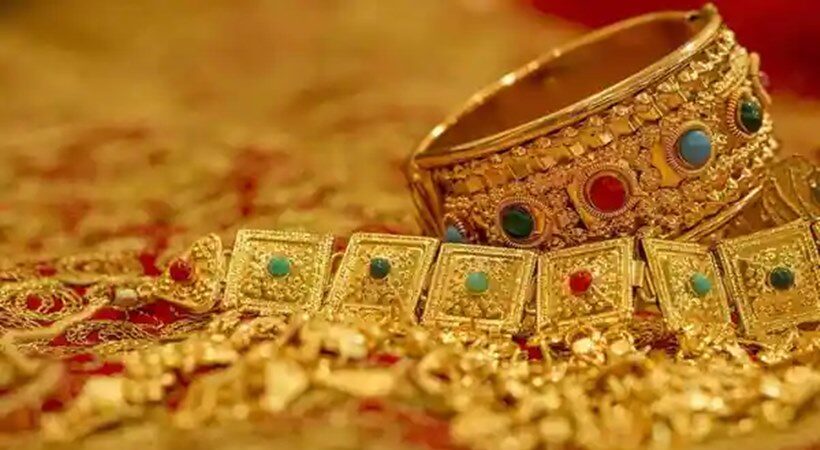The Indian government has made hallmarking of gold jewellery a must since yesterday to ensure the purity of gold and standard rates for customers. The Union government said the plan would take effect in a phased manner and would be implemented in 256 districts to begin with.
But what is the importance of gold hallmarking?
Well, gold hallmarking is a purity certification that has been voluntary so far. Hallmarking ensures that gold can now be resold at standard rates and there will be uniform gold valuation against the hallmark. This implies that consumers will not be cheated anymore while purchasing gold ornaments and guarantee their purity as well.
Since June 16, jewellers have been allowed to sell only 14, 18 and 22 carats of gold jewellery, and 20, 23 and 24 carats of gold will also be allowed for hallmarking soon. As per the Indian government, hallmarking is required “to enhance the credibility of gold jewellery and ensure customer satisfaction and consumer protection.” Only about 40% of gold jewellery was hallmarked until yesterday.
The previous deadline was January and was delayed by four months as jewellers sought more time due to the Covid crisis in India.
“Continuing the government’s endeavour for better protection and satisfaction of consumers, mandatory hallmarking in 256 districts will be into force from June 16,” tweeted Piyush Goyal, Consumer Affairs Minister, on Tuesday.
Talking to PTI, Consumer Affairs Secretary Leena Nandan stated that gold hallmarking would be implemented in a phased manner, initially in 256 districts that have Assaying marking centres. The concerns of the industry were addressed and clarified in great detail during the meeting.
However, for now, some have been exempted from mandatory hallmarking, including jewellers with an annual turnover below Rs 40 lakh, after extensive discussion with stakeholders.
Also, those who export and reimport jewellery under the trade policy, jewellery meant for international exhibitions, and government-approved B2B national exhibitions will also be kept out of the scheme for now.
However, hallmarking will not be mandatory for gold used in watches, fountain pens, and Kundan and Jadau jewellery, the centre said.
“Jewellers can continue to re-purchase old gold jewellery without a hallmark from consumers if feasible after it is melted and crafted into new jewellery,” the government said, clarifying that old jewellery can be hallmarked.”
Since 2000, the Bureau of Indian Standards (BIS) has been running a hallmarking scheme for gold jewellery. With this, today India has around 4 lakh jewellers, out of which 35,879 are BIS certified.



















